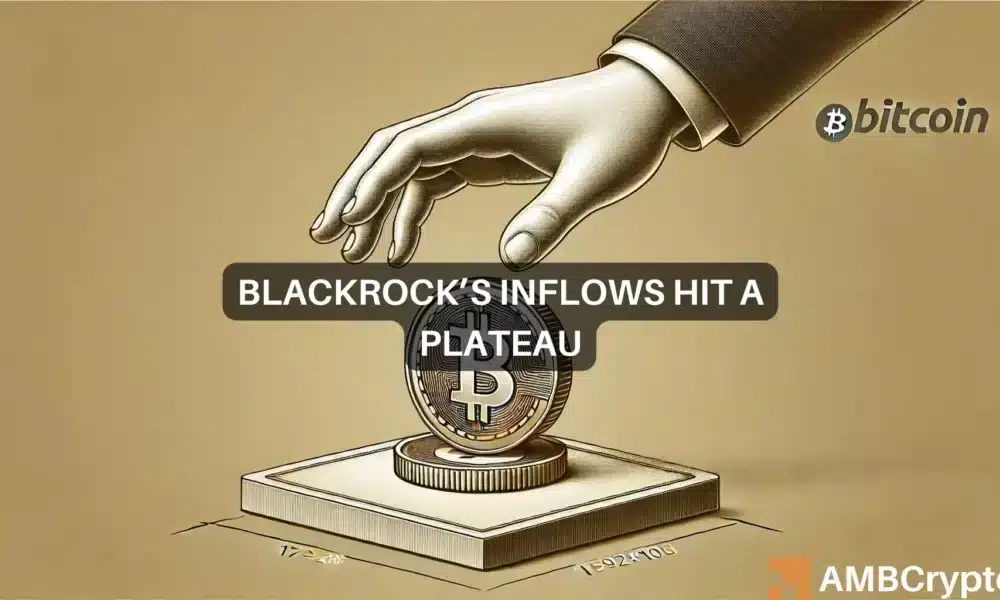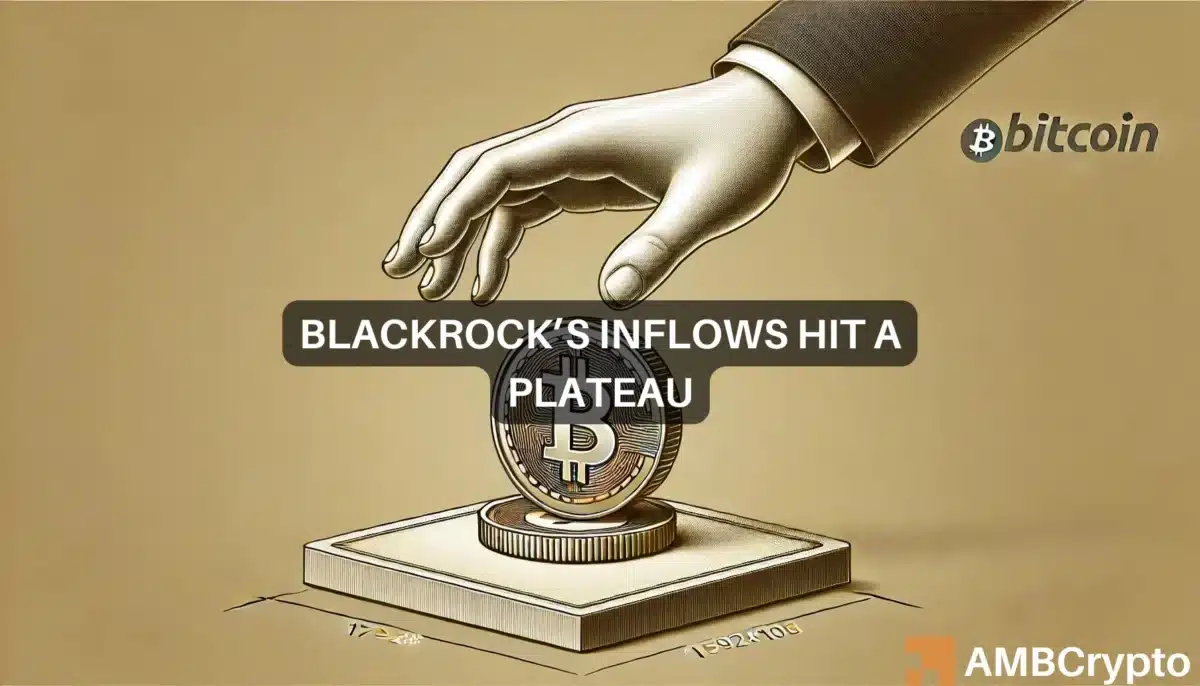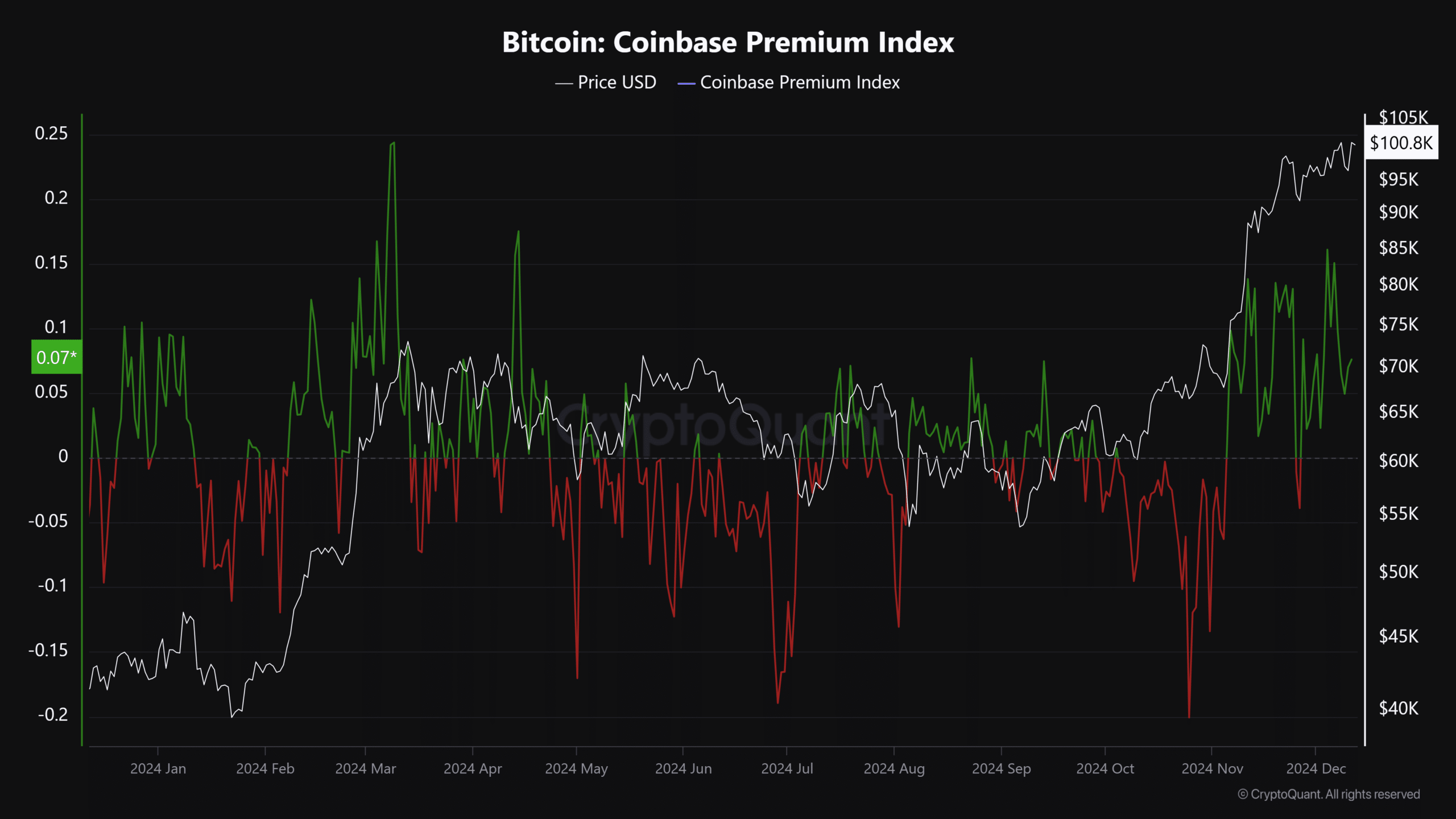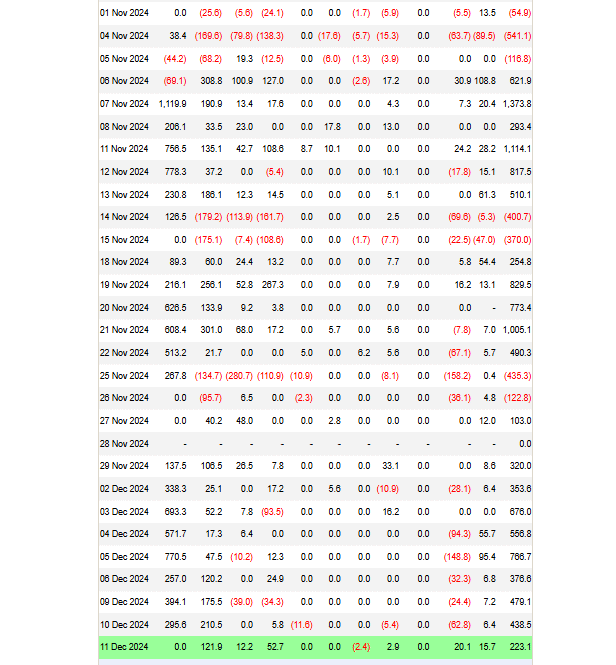Bitcoin ETF inflows hit weekly lows: Has the bullish streak ended?
12/12/2024 21:00
Bitcoin ETF inflows have hit a weekly low, as the market grapples with anticipation and uncertainty, fueled by key factors.

Posted:
- Bitcoin ETF inflows have hit a weekly low, as the market simmers with both “anticipation” and “uncertainty”.
- A mix of internal dynamics and external factors leaves Bitcoin’s next target unclear.
The past 40 days have been “highly volatile,” truly testing the patience of Bitcoin [BTC] stakeholders. The highs propelled BTC to its ATH of $104K, but the lows dragged it back to around $94K, leaving investors on edge.
And the real challenge? It’s just beginning. Just two days ago, BlackRock’s (IBIT) support sparked nearly $300 million in net ETF inflows, sending Bitcoin surging 4% in one day. This institutional push helped BTC close above the $100K mark.
But here’s the catch—the rally feels fragile. BlackRock’s inflows have since dwindled to net zero, signaling the end of a week-long surge streak. Even overall ETF inflows have halved.
Meanwhile, whispers of a potential 25 bps rate cut by the Fed are keeping hopes alive, but Bitcoin’s biggest asset remains institutional backing.
So, as early investors cash out as millionaires, all eyes are on the institutional heavyweights. Will they be the ones to push BTC toward the ambitious $200K target, or will their fading support trigger a new wave of doubt?
Bitcoin’s latest surge might just be a ‘Cautious’ optimism
Early investors seem to be cashing out at the pivotal $100K resistance level, signaling a retreat from greed and a pullback in risk appetite.
Yet, the recent surge that catapulted Bitcoin above $101K—after weeks of fierce back-and-forth between the $94K and $100K price band—has sparked fresh optimism.
According to AMBCrypto, this optimism remains somewhat cautious, driven more by “anticipation” than the actual “execution” of a Fed rate cut.
While the U.S. job market shows promise with a decline in the unemployment rate, inflation has made a noticeable comeback. The CPI has risen to 2.7% on a yearly basis, with a slight 0.3% increase in just one month.
With these mixed signals, all eyes are now on the upcoming FOMC meeting scheduled for next week. Will the Fed take a more conservative stance in response to the uptick in inflation, possibly opting for higher interest rates? Or will it lean more liberal, considering a rate cut to support the economy?
Regardless, the short-term impact on Bitcoin’s price is already evident.
U.S. investors have eagerly seized the opportunity to buy BTC, particularly through their Coinbase cohorts, after a period of distribution that dominated much of the second week of December.
While this uptick is undeniably bullish, it could prove to be a temporary blip unless Bitcoin’s fundamentals, including strong Bitcoin ETF inflows, spark sustained interest from both retail and institutional investors.
Declining Bitcoin ETFs signal signs of uncertainty
Since launching in January, Bitcoin ETFs have become a popular way for retail investors to access Bitcoin’s volatility, with strong support from institutions.
After the “Trump pump” sparked excitement, Bitcoin ETFs reached a record $1.3 billion in inflows, with BlackRock contributing $1.2 billion.
However, recent trends suggest a shift. BlackRock’s inflows have plateaued, ending a streak of consecutive gains.
While this doesn’t signal a full bearish outlook for Bitcoin, it does highlight a dip in enthusiasm for Bitcoin ETFs, with overall inflows hitting a weekly low.
Read Bitcoin’s [BTC] Price Prediction 2024–2025
This reinforces AMBCrypto’s view of a more ‘cautious’ optimism in the market – enough to potentially set $100K as a bottom for Bitcoin, but not quite enough to drive it toward a new all-time high.
Thus, the market is in a delicate balance, where hope remains, but the road to fresh highs seems uncertain.

